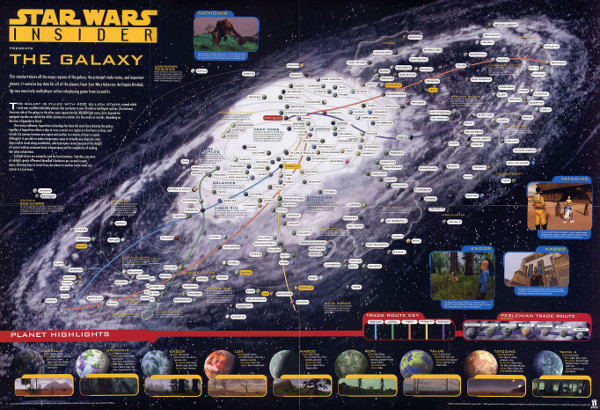Seriously, that’s the best way to describe it. In Westerns and TV serials, the heroes travel from town to town, with a new adventure in each place. Well, in science fiction, we don’t hop towns, we hop planets. Why? Because we can.
Unfortunately, since planets and towns are actually pretty different kinds of places, there’s a lot of room to do things poorly and turn this trope into a cliche. Any story that doesn’t consider (or at least lampshade) the implications of space travel and planetary colonization is in danger of becoming over-the-top campy–although, to be fair, there is an audience for that.
That doesn’t mean there isn’t room for this trope in fiction that takes itself a little more seriously. In fact, I take issue with some of the descriptions on the Planetville page. From tvtropes:
Unfortunately, because Sci-Fi Writers Have No Sense of Scale, stories about Planetville make no sense. Nobody seems to realize how BIG a planet is — everything in Planetville takes the same amount of time as stories set in towns or countries. In the updated Wild West story, the outlaws are “exiled from the planet” just like they’d be exiled from Dodge City, and have to quietly leave… instead of flat out challenging the authorities to find them when they have an entire planet in which to hide. When the space Nazis invade, they seem to need the same number of soldiers and time as the Earth Nazis needed to invade Europe. And when the crew of the Cool Starship finds the cure for the alien plague, the logistical issues of distributing it to an entire planet rarely get mentioned at all. These considerations are minimized or left out entirely in many stories.
To address these criticisms point by point:
1) Scale is relative to technology and the predominant modes of transportation. When my ancestors crossed the plains to settle in modern-day Utah, they had to walk. It took them months to get here and many of their family members died along the way. Today, I can make the same trip by car in a day or two. As technology changes, so does the sense of scale.
2) Unlike what some tropes would have you believe, not all planets are Earth-like. In fact, it appears that most planets outside our solar system are wildly different. In practical story terms, this means that any part of the world that’s remotely habitable is probably going to be immediately around the colony. Consequently, the local authorities probably will have the power to exile trouble makers from an entire planet, since exile from the colony would mean de facto exile from the planet as well.
3) Anyone venturing outside of the dome would have to carry just about everything necessary for life, including air, water, food, etc. You might as well try to hide in Antarctica as hide on an alien planet. It can be done, of course, but to do all that and stay hidden, that’s going to be tough. You might as well set up a rival colony for all the effort–but at that point, the story is about a lot more than just hiding from the authorities.
4) If your planetary colonies are only as populous as an average WWII era city/town, then yeah, you’ll only need as many soldiers as it took to conquer them. The biggest difference is that they’ll fly a really cool starship.
5) Again, if the planet isn’t habitable and the population is contained within a handful of relatively small colonies, then distribution shouldn’t be too much of a problem.
However, the tvtropes page does make this valid point:
A side effect of this is that the characters never realize that things can happen in parts of planets. You will never see aliens trying to capture a planet’s equator, or its polar caps — it’s the whole planet or bust.
In the end, I think the key to doing this trope well is to know your setting well enough to fit the story to it. Tropes are tools, and when done well, this trope can accomplish everything it sets out to do while making perfect sense within the context of the story.
In my own work, this trope is most prevalent in the Star Wanderers series. Every novella takes place at a different planet or space station, sometimes multiple planets per station. Because most of the stars in this universe have only recently been settled, the colonies are small and terraforming is quite limited. In Desert Stars, I used a similar concept, except with large domed areas of a single planet, instead of multiple planets (Adventure towns…UNDER THE DOME!!!). In cases where the planets are Earth-like, however, or where travel between planets is costly and difficult, this trope doesn’t really ever come into play.

1 comment